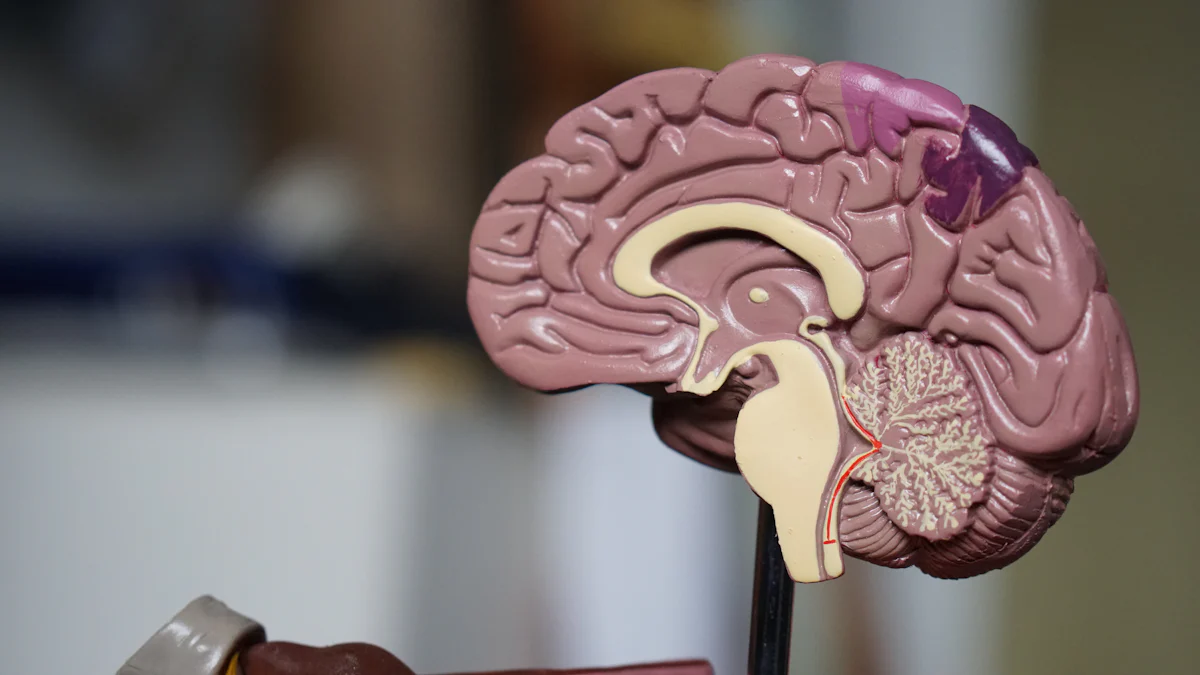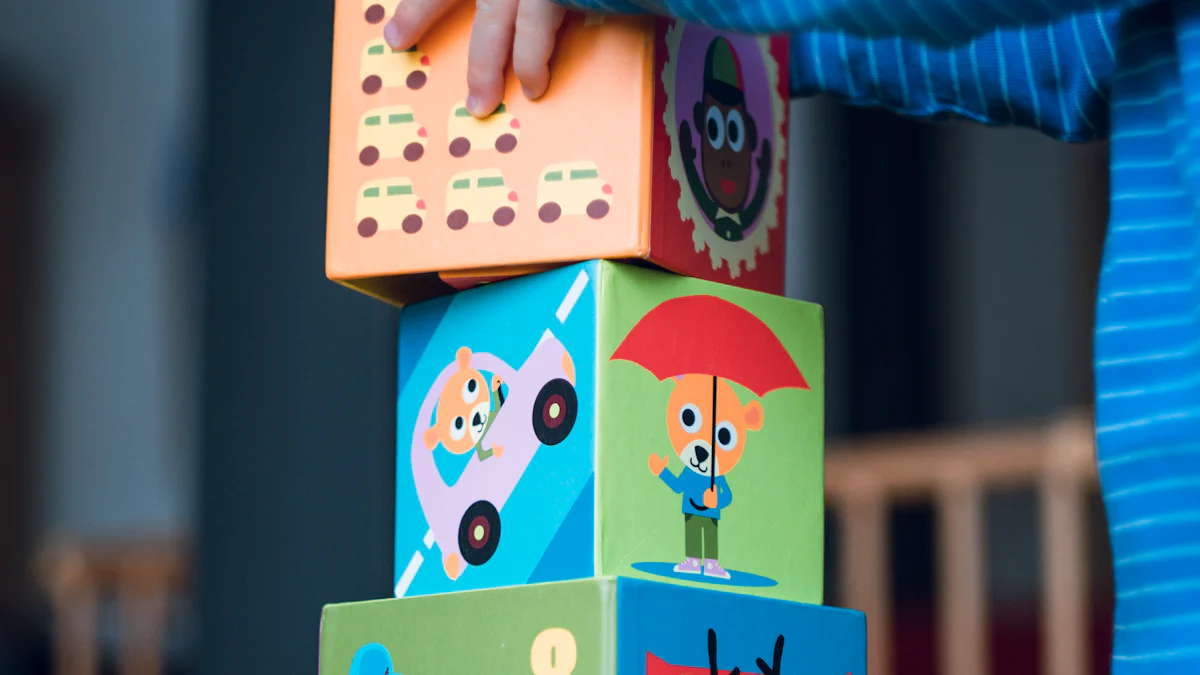The Science of Play: How Playtime Affects Brain Development

Play serves as a fundamental aspect of childhood. The International Play Association emphasizes that play impacts brain development significantly. England recognizes the importance of play in early years. The Science of Play reveals how play shapes the brain. Brain development occurs rapidly during the first three years. IPA England Trustees advocate for play's role in cognitive growth. London supports initiatives to promote play. Play enhances brain connections. The brain thrives on diverse play activities. Play fosters development in various domains. England values the developmental benefits of play. The brain's adaptability highlights the need for play.
Understanding Play and Its Importance
Definition of Play
Play serves as a vital component in childhood. Camp ABC emphasizes the importance of play in brain development. Children engage in play to explore their surroundings. Play involves activities that stimulate creativity and imagination. Children learn through play, which enhances cognitive skills.
Characteristics of Play
Play exhibits several characteristics. Play is voluntary. Children choose activities that interest them. Play is enjoyable. Children find joy in engaging with their environment. Play is flexible. Activities can change based on children's preferences. Play is non-literal. Children use imagination to create scenarios.
Types of Play
Different types of play exist. Physical play involves movement. Children develop motor skills through running and jumping. Constructive play involves building. Children use blocks to create structures. Dramatic play involves role-playing. Children act out scenarios using imagination. Games with rules involve structure. Children follow guidelines to achieve objectives.
Importance of Play in Early Childhood
Play holds significant value in early childhood. Camp ABC highlights the role of play in learning. Play fosters language development. Children engage in conversations during activities. Play enhances social skills. Children learn cooperation through group play.
Role in Learning and Development
Play contributes to learning and development. Children acquire problem-solving skills through play. Activities challenge children to think critically. Play promotes language development. Children expand vocabulary through interactions. Play supports emotional growth. Children express feelings during imaginative play.
Play as a Natural Behavior
Play represents a natural behavior. Children instinctively engage in play. Camp ABC encourages play as a means of exploration. Play and language development intertwine. Children communicate ideas through play. Play nurtures curiosity. Children discover new concepts through activities.
Cognitive Development Through Play

Strengthening Neural Connections
Play acts as a catalyst for cognitive development in Pre-K. The brain forms new neural connections during play activities. These connections enhance cognitive skills and language abilities. Children engage in various play activities that stimulate the brain. The brain becomes more adaptable through these experiences. Play contributes to cognitive development by reinforcing existing neural pathways.
Impact on Brain Structure
Play influences the brain's structure significantly. The brain develops more efficiently when children engage in diverse play activities. Pre-K programs often emphasize play to support brain growth. The brain's adaptability increases with regular playtime. This adaptability aids in cognitive development and learning.
Enhancing Memory and Learning
Play enhances memory and learning in Pre-K kids. The brain retains information better through interactive play. Children develop cognitive skills by engaging in memory-based games. These activities improve language skills and cognitive development. Play encourages children to explore and learn new concepts. This exploration strengthens the brain's ability to process information.
Promoting Executive Function
Play promotes executive function in Pre-K kids. Executive function involves cognitive skills like problem-solving and attention. Children develop these skills through structured play activities. Pre-K programs incorporate play to enhance cognitive development.
Development of Problem-Solving Skills
Play fosters the development of problem-solving skills. Children encounter challenges during play that require critical thinking. The brain becomes more adept at finding solutions through these experiences. Pre-K programs use play to teach problem-solving techniques. These skills contribute to cognitive development in Pre-K.
Enhancing Attention and Focus
Play enhances attention and focus in children. The brain learns to concentrate on tasks through engaging play activities. Pre-K programs design activities that improve cognitive skills like focus. Children develop better attention spans through regular play. This improvement supports cognitive development and learning.
Physical Development and Play

Motor Skills Development
Play and Physical Development go hand in hand. Children engage in activities that enhance motor skills. These skills contribute to overall growth and learning.
Gross Motor Skills
Gross motor skills involve large muscle movements. Activities like running and jumping improve these skills. Children develop strength and coordination through active play. Schools often incorporate games that boost gross motor development. These activities support cognitive growth by engaging the brain.
Fine Motor Skills
Fine motor skills focus on smaller muscle movements. Tasks like drawing and building with blocks enhance these skills. Children improve hand-eye coordination through these activities. Schools encourage fine motor play to aid in language development. These skills are crucial for cognitive and physical growth.
Health Benefits of Physical Play
Physical play offers numerous health benefits. Children experience improved fitness and coordination. These benefits contribute to overall well-being and development.
Physical Fitness
Physical fitness is essential for healthy growth. Play activities like sports and dance improve cardiovascular health. Children build endurance and strength through regular play. Schools promote physical play to support fitness and cognitive development. This approach enhances learning and brain function.
Coordination and Balance
Coordination and balance are vital skills. Activities like balancing on beams or playing catch improve these abilities. Children develop better control over their bodies through play. Schools design programs that focus on enhancing coordination. These skills support cognitive and language development.
Social and Emotional Development
Building Social Skills
Play in Child Development plays a vital role in building social skills. Kids learn how to interact with others through various play activities. Playful interactions teach kids essential cooperation and teamwork skills.
Cooperation and Teamwork
Cooperation and teamwork emerge naturally during play. Kids work together to achieve common goals. Group activities require kids to share resources and ideas. These experiences foster a sense of community and collaboration. Kids develop a deeper understanding of working alongside peers.
Communication Skills
Communication skills improve significantly through play. Kids engage in conversations that enhance language abilities. Role-playing scenarios encourage kids to express thoughts and emotions. These interactions build confidence in verbal communication. Kids learn to listen and respond effectively to others.
Emotional Growth Through Play
Playful experiences contribute to emotional growth. Kids explore emotions in a safe and supportive environment. Emotional development becomes an integral part of play.
Understanding Emotions
Understanding emotions becomes easier through play. Kids encounter various situations that evoke different feelings. Playful activities allow kids to express joy, frustration, and empathy. These experiences help kids recognize and manage emotions. Kids gain insights into their own emotional responses.
Building resilience occurs naturally during play. Kids face challenges that test problem-solving skills. Overcoming obstacles fosters a sense of achievement. Playful environments encourage kids to try again after setbacks. Resilience strengthens as kids learn to adapt to changing circumstances.
Building resilience occurs naturally during play. Kids face challenges that test problem-solving skills. Overcoming obstacles fosters a sense of achievement. Playful environments encourage kids to try again after setbacks. Resilience strengthens as kids learn to adapt to changing circumstances.
The Critical Period: First Three Years
Rapid Brain Development
The first three years of life represent a critical period for brain development. Anne Brower School emphasizes that early experiences shape the brain's structure and function. Kids engage in play that strengthens neural connections. Learning during this time lays the foundation for future cognitive abilities. Anne Brower highlights the importance of nurturing environments for optimal growth.
Importance of Early Experiences
Early experiences play a crucial role in shaping the brain. Kids benefit from activities that stimulate cognitive and social skills. Anne Brower School encourages diverse play to enhance learning. Engaging in varied experiences promotes adaptability and problem-solving skills. These early interactions contribute to long-term brain health.
Long-term Impact on Brain Function
The impact of early experiences extends into adulthood. Kids who experience enriching environments develop stronger cognitive and social skills. Anne Brower School supports initiatives that focus on early childhood development. Learning during the critical period influences academic success and emotional well-being. The brain's adaptability during these years underscores the need for quality early experiences.
Role of Caregivers in Facilitating Play
Caregivers play a vital role in facilitating play. Anne Brower School provides resources to help caregivers create stimulating environments. Kids thrive in settings that encourage exploration and creativity. Caregivers can support learning by offering diverse play opportunities. Anne Brower emphasizes the importance of caregiver involvement in early education.
Creating a Stimulating Environment
A stimulating environment fosters brain development. Anne Brower School suggests incorporating various play materials. Kids benefit from spaces that encourage movement and interaction. Schools can design classrooms that promote active learning. Engaging environments support cognitive, social, and emotional growth.
Encouraging Diverse Play Activities
Diverse play activities enhance learning and development. Anne Brower School recommends offering a range of experiences. Kids can explore different types of play to build various skills. Schools can integrate activities that promote creativity and problem-solving. Encouraging diverse play supports holistic development in children.
Play holds immense value in brain development. Kids benefit from engaging in diverse play activities. Play strengthens cognitive, physical, social, and emotional skills. Prioritizing play in daily routines enhances overall growth. Kids thrive when given opportunities to explore and learn through play. Play encourages creativity and problem-solving abilities. Caregivers should create environments that support active play. Kids develop essential life skills through playful interactions. Emphasize the importance of play in early childhood. Encourage kids to engage in various play forms for holistic development.
See Also
The Significance of Play for Children's Growth and Development
Understanding the Importance of Sleep for Children's Wellbeing
The Positive Impact of Boredom on Children's Developing Brains
Promoting Inquisitiveness: The Vital Role of Questions in Child Growth
Parental Influence on Nurturing Children's Curiosity and Discovery

